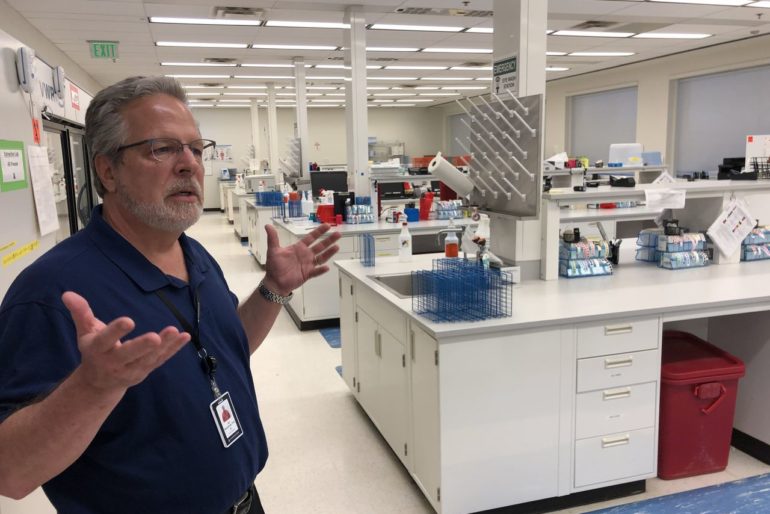Researchers and scientists in Alabama are playing a crucial role in the development of coronavirus treatment, testing and response across the country.
Alabama’s universities have proved an invaluable resource to the global coronavirus response, with Auburn University, the University of Alabama, the University of Alabama at Birmingham and the University of Alabama in Huntsville all contributing to the development of virus treatments and community research.
Auburn doctoral candidate helps develop COVID-19 test
Richard Cullum, an Auburn University doctoral candidate in chemical engineering, works for Assurance Scientific Laboratories in Birmingham as a member of the research and development team that created a test for COVID-19 in less than two weeks.
Assurance Scientific was one of the first 26 commercial labs in the United States approved by the FDA for COVID-19 testing. They have produced more than 12,000 coronavirus tests for use in Alabama and elsewhere.
Huntsville lab Diatherix Eurofins develops COVID-19 panel
Diatherix Eurofins, a Huntsville diagnostics lab developed a panel to help identify the SARS-CoV-2, the virus that causes COVID-19.
“There is a big need and push for CLIA-certified laboratories such as ours to also develop assays for COVID-19,” Diatherix Chief Science Officer & Laboratory Director Jeff Wisotzkey told AL.com. “If there is an increased need for testing, we want to all be prepared to meet that need.”
UAB behind nationally recognized COVID-19 treatment
Dr. Richard Whitley, a professor at the University of Alabama at Birmingham, is the primary researcher behind the investigational drug remdesivir used to treat COVID-19.
Remdesivir was developed through research at UAB’s Antiviral Drug Discovery and Development Center.
UAH professor examining possible COVID-19 treatments
Dr. Jerome Baudry, a biology professor at the University of Alabama in Huntsville is part of an effort led by Oak Ridge National Laboratory in Tennessee that uses supercomputers to examine existing compounds that could be used to treat COVID-19.
“We are at this point focusing on repurposing existing drugs,” Baudry said in a UAH press release. “That is, to take existing drugs from the shelf and find which ones are active against either the virus itself or can help in treating or mitigating the effects of infection in the severe cases.”
University of Alabama professor studies COVID-19 emotional response
Dr. Philip Gable, associate professor of psychology at the University of Alabama, was awarded a federal grant to study how emotions influence people’s response to the spread of the novel coronavirus.
The research project is part of the National Science Foundation’s Rapid Response Research funding program in its effort to understand the spread of COVID-19 and learn more about the virus’s transmission and prevention.
“Right now there is a tremendous amount of uncertainty in day-to-day life around the globe,” Gable said in a UA press release. “We are interested in the role uncertainty plays in how people feel and behave, and we are especially interested to see how non-conscious emotions toward avoiding the virus influence health behaviors.”
Auburn engineers adapts CPAP machines into emergency ventilators
A group of Auburn engineers developed a way to quickly convert CPAP machines into ventilators to treat COVID-19.
“What started as pure intellectual curiosity quickly grew into an emotional race against time to potentially save lives,” said Zabala, in an Auburn University press release. “We wanted to know if we could design a solution to solve the ventilator shortage problem.”
As patients with COVID-19 continue to pour into hospitals across the country, ventilators, one of the most important tools doctors use to treat the virus, are becoming scarce. Tom Burch and Michael Zabala, faculty in the Samuel Ginn College of Engineering’s Department of Mechanical Engineering, and Hayden Burch, a sophomore in mechanical engineering developed the RE-INVENT, an accessory that would repurpose a continuous positive airway pressure used to treat sleep apnea, into a functional ventilator.

